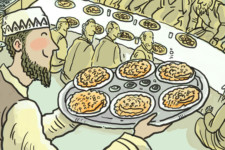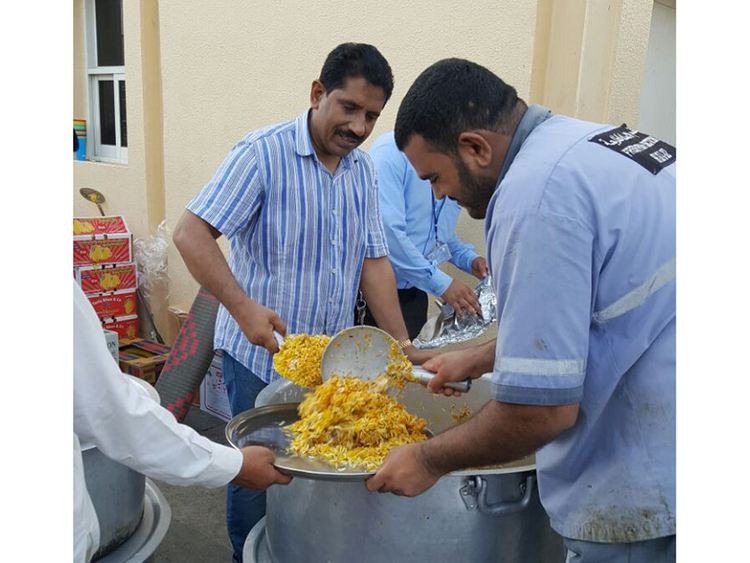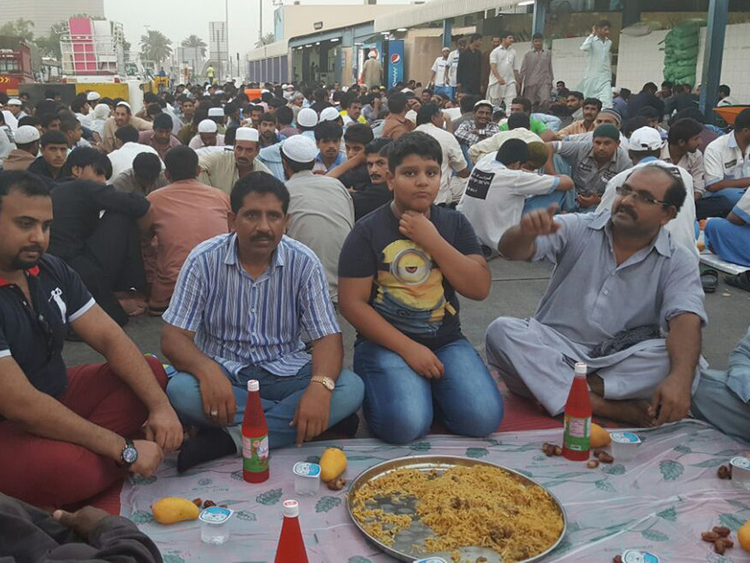
Dubai
Every day at the Deira fish market, almost 500 people gather for iftar during Ramadan, thanks to the hospitality of a shopkeeper Yaseen Akram.
With his shop in the neigbouring gold souq, the Pakistani national has been offering free iftar to people at the fish market for the past four years.
His inspiration? The yearly umrah he and his family go for during Ramadan.
“In Islam, it is said that you should help a fasting person end his fast, even if it is with a single date. Whether I had one riyal or two, I would try to spend it on the public iftar in Makkah and Madinah. I prayed that Allah make me of those people who put up such extensive iftar spreads for people,” he told Gulf News.
Today, he shuts shop after Asr (late afternoon) prayers and, along with his seven employees and a couple of volunteers, arranges for the daily iftar. Because of the massive turnout, he now employs five to six workers during the month to ensure the attendees get all the food and the place is later cleaned up.
However, for Akram this sense of service is not limited to Ramadan. He has allocated a regular budget, which his wife manages, to support families in Pakistan, where the parents do not earn enough and struggle to get their daughters married. His wife, who is a gynaecologist, also runs a welfare clinic in his hometown.
In his own way, Akram has been able to have a lasting, positive impact on the world. But he never set out to change the world. He simply wished to be a part of the good he saw people doing.
“When you go to good places, the good within you increases. Spending money isn’t that big a deal. The big deal for anyone is to look at the people sitting right before iftar. I keep checking on the preparations till the last minute and as soon as the azan or call for prayer is heard, I sit wherever I find space.”
Making the world a better place might sound like a grand plan but in reality it often comprises of such little steps.
George Zacharia, a 19-year-old Dubai resident, set up a youth group three years ago with the simple motto: “Small act, big impact”.
Last week, the group organised an iftar at a women’s workers accomodation. The experience not only gave them a chance to do social welfare work, it was also an opportunity to raise environmental awareness with students bringing handmade paper bags to distribute items of every day use.
“It was a big learning experience for the children. They don’t normally get to see the difficultites the workers face,” Zacharia told Gulf News.
Through events like iftars, clean up campaigns and fundraising activities for Syrian refugees the group hopes to not just foster empathy and a sense of public service, it also hopes to create leaders of tomorrow that will help make the world slightly better.
“You should always be optimistic. Do whatever you can, and it will be enough. We are not asking you to donate a million dollars to an environmental fund, but if you just plant a tree it will make a difference. The world may be in a very bad state right now, and it might look like a tough task. But it’s worth it.”
— The writer is a freelance journalist with Gulf News














